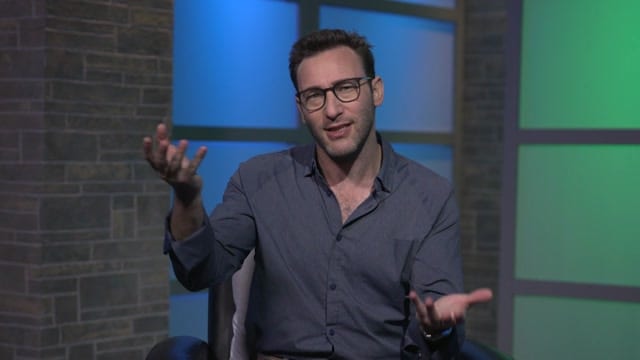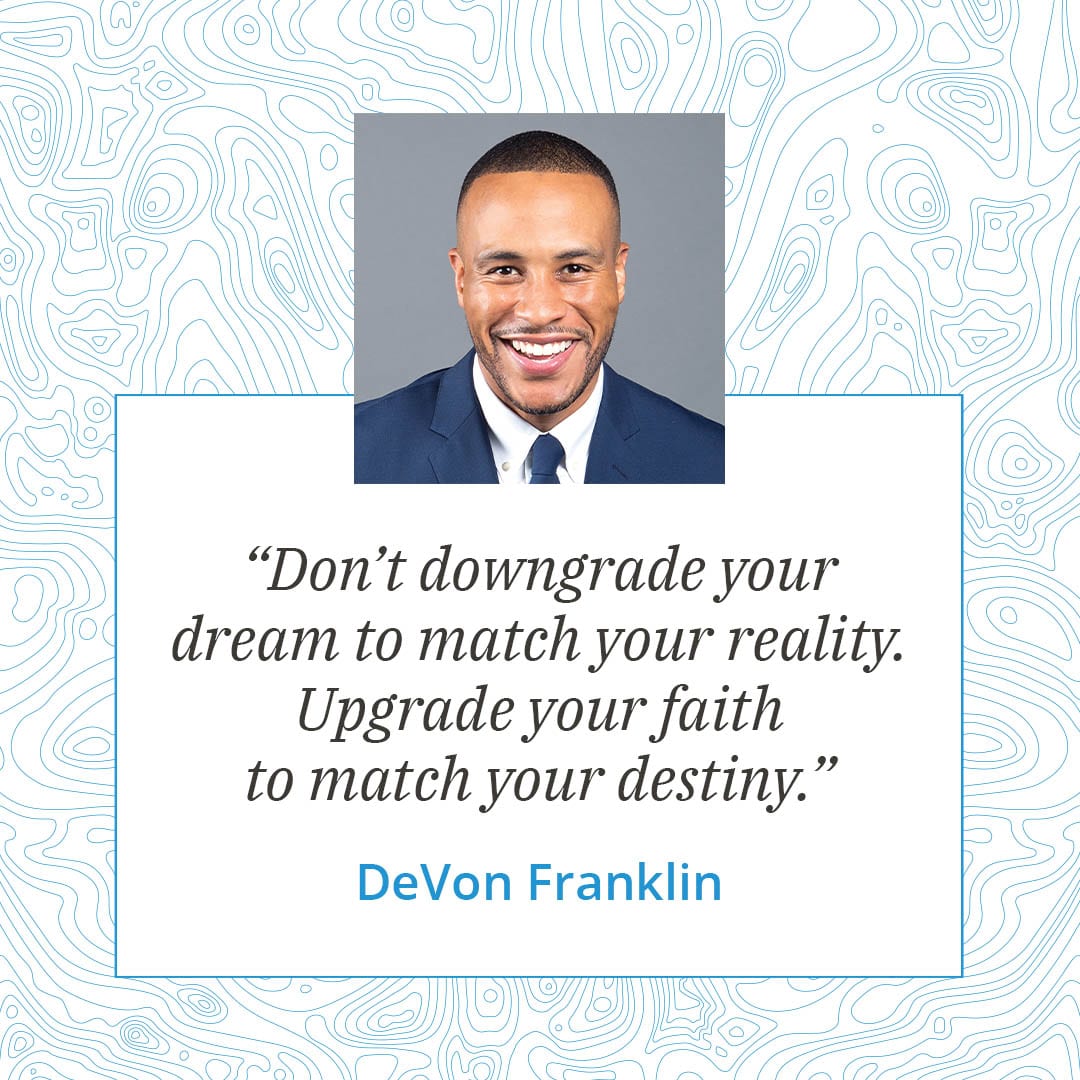
Simon Sinek describes the elements of healthy collaboration. Part of the GLSnext Tips series.

Simon Sinek describes the elements of healthy collaboration. Part of the GLSnext Tips series.

Simon Sinek explains why human interaction is essential to building a healthy team. Part of the GLSnext Tips series.

Liz Wiseman discusses how leaders can change their Accidental Diminisher tendencies.


Former Co-Chairman, Disney Media Networks; Former President, Disney ABC Television; Best-Selling Author
Ben Sherwood served as Co-Chairman of Disney Media Networks and President of Disney ABC Television Group from 2014 to 2019. Sherwood oversaw a portfolio of global entertainment and news properties, including the ABC Television Network, ABC News, ABC-owned television stations, the Disney Channels Worldwide, Freeform, and Disney’s ownership interest in Hulu and AETN, including History Channel, Lifetime and A+E.
At Disney/ABC, Sherwood managed a 12-billion-dollar business with 12,000 employees responsible for the creation of more than 25,000 hours of original content every year.
An award-winning journalist and best-selling author of both non-fiction and fiction books, Sherwood’s articles and essays have appeared in many publications including The New York Times, The Washington Post, the Los Angeles Times, and Newsweek.
Join 405,000+ of your peers for two days of fresh, actionable and inspiring leadership training from a world-class faculty at a location near you. Super Early Bird Pricing for a limited time only.
*Faculty lineup subject to change

You’ve heard the saying, “People won’t remember what you told them, but they’ll remember how you made them feel.”
I honestly can’t stand that saying.
And while many use it as a maxim for leadership, I don’t know any parent who uses it as a maxim for parenting. In fact, the best parents I know employ the opposite approach. They know that part of their role is to be occasionally hated by their kids.
Of course, you can’t ignore feelings, and a spoonful of sugar often helps the medicine go down. But if our primary goal is how people feel, then our leadership is in for a world of hurt.
Think about it: if you want to make most people feel good, all you have to do is treat them like they’re needy and fragile. Flatter them. Appease them. Give them whatever they want. Tell them what they want to hear. Soften honest feedback. Or better yet—avoid feedback altogether. But if you want to actually value people, treat them like they’re strong and powerful, even if in the moment, that doesn’t make them feel good.
If you want to actually value people, treat them like they’re strong and powerful.
In addition to our global executive coaching practice, our company also runs a coaching certification program that trains others on how to create their own coaching practices.
The director of that program, Amanda Inchaustegui, recently reminded me of a conversation she and I had debriefing some hard feedback she had received from a client of hers. Her initial reaction to the feedback was from a pretty disempowered stance.
Now, anyone who knows me is aware that a disempowered attitude is one of my least favorite things in the world. Ironically, I sometimes get disempowered (read: frustrated) when other people are disempowered (which doesn’t solve anything). This time I managed to stay calm but strongly challenged her to notice how disempowered she was choosing to be. To her credit, she responded beautifully and shifted in a powerful way that served both of us during the rest of the conversation.
Afterward she said to me, “I appreciate you for calling me out.”
“I didn’t call you out,” I said, “I called you forward.”
You see, the primary purpose of valuing people is not to make them feel something, but to make them unleash something.
In that moment with Amanda, I was valuing her. Which is to say, I was holding a space for her to step into her true value.
In my work with executives and teams over the years, I’ve come to believe that while people may like you because of how you make them feel, they’ll change the world based on how you help them grow. This means that the best way to treat someone like they’re valuable is to serve them so powerfully that they discover how to unleash their value in ways they’ve never dreamed.
Ever praise someone and it doesn’t land? Ever encourage someone over and over again, but it seems like no matter how much you encourage them, they still struggle to grow?
A little over a year, ago our Director of Development, Jon Roberts, had an idea to take 10 minutes a week during our Wednesday mornings meetings to acknowledge people in the firm for, well, pretty much anything.
We acknowledge wins.
We acknowledge growth.
We acknowledge risks.
We even acknowledge failures.
This was a lot of fun and it has created an opportunity for us to cheer for each other. But the most powerful moments are not when we take time to acknowledge each other. We also take time to acknowledge ourselves.
Which sounds like this, “I’d like to acknowledge myself for…”
And then when one of us is done acknowledging ourselves, someone from the team also acknowledges us for that same thing.
What’s been interesting is how easy it is for people on our team to praise others, but how difficult it is for people to praise themselves in front of others.
I can remember the first time I acknowledged myself during one of our meetings. There were over 20 people on the call from 3 different countries and it felt…weird. But afterward it felt strangely empowering. Like I didn’t have to wait for someone else to “catch me doing something right.” I could actually catch myself doing something right and bring it up to others as a healthy way of celebrating my own life.
Don’t call people out. Call them forward.
As the saying goes, “Give a man a fish, feed him for a day. Teach a man to fish, feed him for a lifetime.” What many leaders fail to realize is that the same could be said of praise. “Give a man a compliment, encourage him for a day. Teach a man to affirm himself, encourage him for a lifetime.”
One of my favorite examples of this is from years ago when I lived with a guy named Thomas Bush. Every time we’d get home from dinner, he’d look at me and say, “Well…we did it.” The first few times I looked at him like he was crazy. “We did what, Thomas?” I’d ask. He’d just smile and say, “Dinner. We did dinner. Congratulations.”
Thomas isn’t an idiot. He’s one of the top sales people for a global company that facilitates the entire internet. He was part of a team that consulted Disney Storytellers for “Wreck-It Ralph 2.” And Thomas knows that you gotta celebrate the small wins. You gotta celebrate yourself. The headwind is too strong otherwise. Sometimes you just gotta say, “We did it” and high five because of…dinner.
During our Wednesday meeting when we acknowledge each other and ourselves, the recipient of the acknowledgement is asked a very important question:
“Do you receive it?”
Do. You. Receive. It.
To me, this may be one of the hardest parts of valuing ourselves: receiving the praise we get.
I’ve met and led so many people who can’t hear the praise I give them. It’s like they’re a balloon with holes in it. It doesn’t matter how much I blow into their lives, it never seems to inflate their spirits.
I know them because I’ve been them.
People may like you because of how you make them feel, they’ll change the world based on how you help them grow.
Let me tell you, the solution usually isn’t more praise. The solution is to help the person patch up the holes in their balloon. And practices of self-affection are one of the best ways to do that.
As we regularly remind each other at Novus Global, coaching is a contact sport. So is leadership. If you fail to find the small wins every day to celebrate, you’ll never go the distance. It’s like trying to work out while holding your breath. You can do it for a while, but eventually your muscles need oxygen if you want them to grow. When people are actually able to receive the praise they are given, and cultivate practices of self-affection, they build strength that will enable them to go the distance.
So, don’t just praise people. Treat them like they’re powerful.
And don’t just acknowledge people. Train them in how to acknowledge themselves.
Celebrate the small wins together and watch how your community begins to shift and not only feel strong but actually become strong.
1. Who on your team are you not inviting into their full value? Is there anyone (maybe yourself) you need to call forward?
2. How well do you celebrate your own small wins?
3. How well do you train your team to celebrate their wins?
4. How well do you and your team receive praise from others?

Around the Global Leadership Network, we have been intrigued by the thought of leadership and negotiation strategies employed by GLS19 speaker and former hostage negotiator, Chris Voss. His insightful book,Never Split the Difference, outlines his approach to negotiation. Take a look at the video below to get window into this thought process.
Voss is the founder and CEO of strategy consultancy Black Swan Group, and prior to working in the private sector, he was the lead international kidnapping negotiator for the Federal Bureau of Investigation, the lead crisis negotiator for the New York City Division of the FBI and a member of the New York City Joint Terrorist Task Force for 14 years.
You may think hearing “you’re right” when you’re trying to win an argument or discussion means you’re getting your way—you’re winning.
But it isn’t. That’s according to former FBI negotiator Chris Voss.
Instead, you should hope to hear “that’s right.”
The difference between “you’re right” and “that’s right” is only one word, but the meaning and impact for your negotiations are very different.
Based on his years working as a professional negotiator, Voss learned to pick up clues from whomever he was negotiating with.
When somebody says, “You’re right,” what they’re really saying to you is, “Please, shut up. Stop talking. I can’t take it anymore. Go away.” Either they like you or they have to act like they like you, so they are being polite by wrapping up the conversation in a way that indicates agreement.
That’s why our coworkers say, “you’re right” when they want us to go away. “you’re right” is designed to get you to shut up and preserve the relationship instead of telling you to “shut up.”
What you want to hear is “that’s right,” says Voss.
If you can get the person you are arguing with to saying, “that’s right,” they are signaling, subconsciously, that they actually believe you understand their perspective.
“That’s right” is what we say when we feel completely heard, and there’s a chemical change that takes place in our brain—it is a subtle epiphany.
And when the other person feels an epiphany, they feel better. They just don’t know where it came from.
Well, it came from your conversation because you got them to say, “that’s right.” And now, without knowing it, they are willing to listen to you. They don’t realize that you set up that reaction, giving you the go-signal because their brain is willing to listen.
Whomever you are speaking with may not be aware they are releasing their resistance to you. That’s just the way the brain works.
If you can get your boss or colleague to trust that you understand where they are coming from—to trust that they are being heard and respected—then you have a much greater chance of getting what you want.
Join 405,000+ of your peers for two days of fresh, actionable and inspiring leadership training from a world-class faculty at a location near you.

Don’t downgrade your dream to match your reality. Upgrade your faith to match your destiny.



“We welcome and encourage comments on this site. There may be some instances where comments will need to be edited or removed, such as:
If you have any questions on the commenting policy, please let us know at heretoserve@globalleadership.org”
Recent Comments